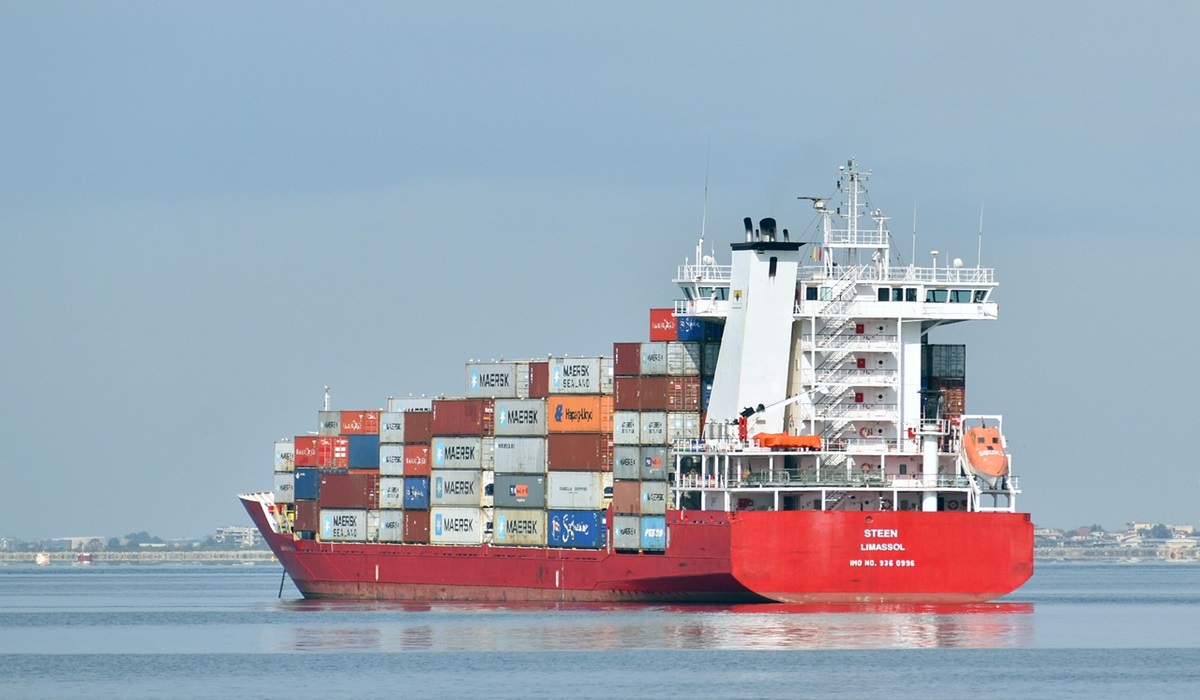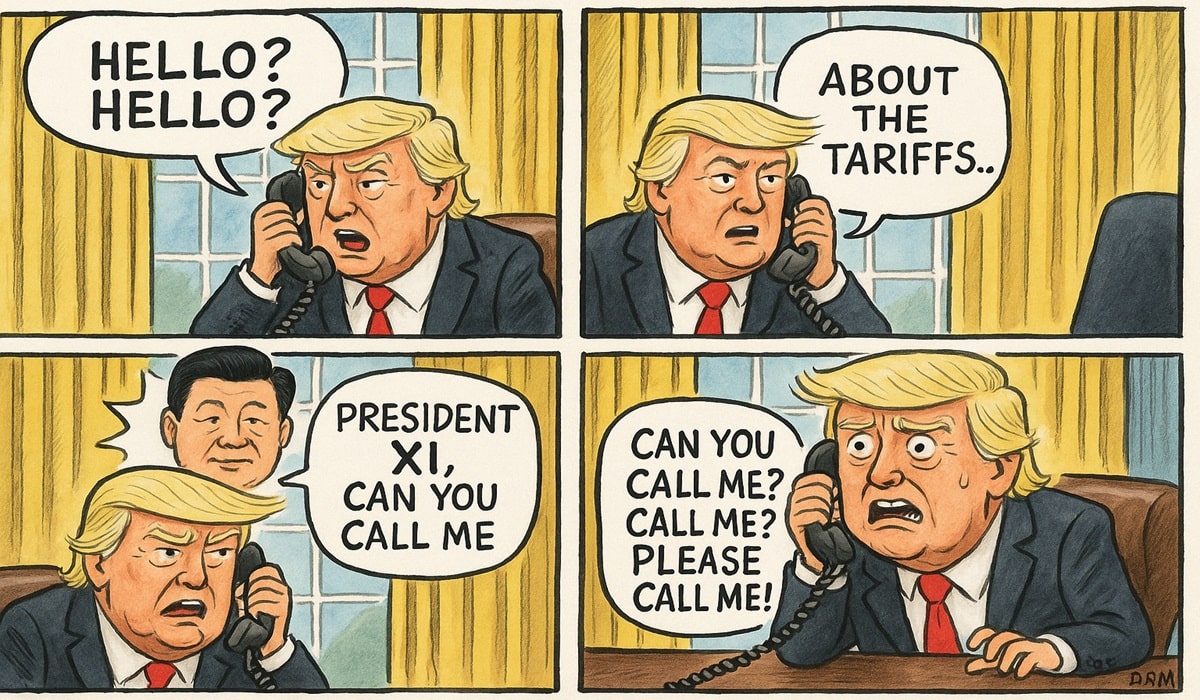Trump’s 104% Tariffs on China, Push U.S Into Recession As World Retaliates
- TDS News
- D.O.C Supplements - Trending News
- Business
- April 9, 2025

Image Credit, Thanasis Papazacharias
President Donald Trump’s decision to slap 104% tariffs on imports from China has sent a seismic shock through the global economy, plunging the United States into a deepening recession and setting off retaliatory measures from more than 100 countries. What was touted as an “America First” policy has morphed into an economic disaster, crippling industries at home and provoking an unprecedented backlash abroad.
Global stock markets have cratered. Billions in investment have vanished overnight. Supply chains are grinding to a halt, and American farmers, manufacturers, and consumers are bearing the brunt. Prices on basic goods are skyrocketing. Layoffs are increasing. And for the first time in years, the U.S. economy has officially contracted.
The administration’s obsession with tariffs has pushed the U.S. to the brink of economic isolation. It’s one thing to levy duties during trade negotiations—it’s another to ignite a full-scale trade war with virtually every major economic partner. Canada, Mexico, Brazil, India, South Korea, and the entire European Union have responded with countermeasures of their own. The message is clear: the world will not be strong-armed by Washington.
Beijing has called the move a gross violation of international trade norms and a dangerous provocation. But the real story is what’s been happening quietly for years. Since Trump’s first term, China has taken pragmatic steps to reduce its reliance on the United States. It has secured new agricultural partners, ramped up domestic production in critical sectors like semiconductors and energy, and expanded its presence across emerging markets through BRICS and other strategic alliances.
“Economic globalization is the only way to human progress. The WTO-centered, rules-based multilateral trading system has been critical in promoting global trade, economic growth and sustainable development. Openness and cooperation are a historical trend. The world will not, and should not, return to mutual isolation or fragmentation. The whole world aspires for win-win cooperation. Economic bullying that shifts risks onto others will ultimately backfire. Making economic globalization more open, inclusive, balanced and beneficial to all is a shared responsibility of the international community.” Ministry of Commerce
The economic relationship that once connected the two largest economies is now fraying—and fast. With each new tariff, the likelihood grows that China will accelerate its plans to divest from U.S. debt holdings, shift trade settlement away from the dollar, and fully detach from American markets. If that happens, the impact will be catastrophic—not just for Wall Street, but for every American whose livelihood depends on exports, imports, or financial stability.
This is no longer about protecting domestic jobs. It’s about the collapse of a global trade framework that the United States helped build—and is now dismantling with reckless abandon. The tariffs have triggered protests across the U.S., particularly in Washington, where thousands have taken to the streets demanding an end to the economic self-sabotage. Corporate donors and billionaires, whose fortunes are being decimated, are no longer sitting quietly. Pressure is building from all sides—Congress, industry, and the public.
Lawmakers from both parties are beginning to push back, voting against the administration’s trade agenda and warning of the long-term damage. Yet the White House continues to double down, ignoring the signs of economic distress and dismissing legitimate concerns as political noise.
But this isn’t noise. It’s a warning. The world is moving on. America’s largest trading partner is no longer waiting for Washington to come to its senses. It’s building new routes, new supply chains, and new alliances. It’s showing the world that the U.S. is not the only game in town.
There’s a fine line between strategic leverage and self-inflicted harm. That line has been crossed. If the current trajectory holds, the U.S. won’t just be left out of the global economy—it will be remembered as the nation that chose pride over prosperity and paid the price in full.








